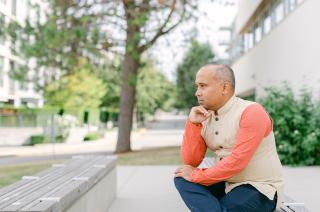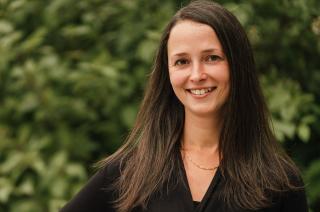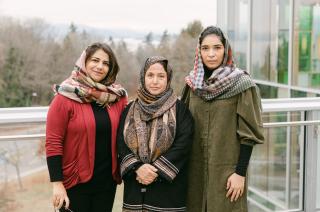
Looking for your next read? Allard Law professors Jocelyn Stacey and Erez Aloni share their thoughts on two books by Allard Law faculty – Deliberative Peace Referendums and Making the Case: 2SLGBTQ+ Rights and Religion in Schools.

Deliberative Peace Referendums
By Hoi L. Kong, Ron Levy and Ian O’Flynn; Oxford Comparative Constitutionalism
How can we learn from the use of referendums in ending apartheid in South Africa, securing South Sudan’s independence, or addressing violence in Colombia? Peace referendums – referendums used to manage armed conflict in divided societies – can be unstable forces which can inflame conflict instead of quelling it. Deliberative peace referendums, however, can help set divided societies on a path toward lasting constitutional settlement through a commitment to public reason and good design. This is the case that Allard Law Professor Hoi Kong and his co-authors, Ron Levy and Ian O’Flynn, set out to make in Deliberative Peace Referendums. Neither divided societies nor referendums make obvious partners for public deliberation. But this is what makes Deliberative Peace Referendums such a compelling read, with its careful unpacking of the challenges of democratic deliberation in high-conflict societies.
It is no surprise that this volume – grounded equally in theory and implementation – comes from Kong and his co-authors, who lead the field of deliberative constitutionalism. Drawing from constitutional law, political theory and the experiences of countries around the world, Deliberative Peace Referendums is an enriching read for anyone interested in tough constitutional and political questions about how to proceed in the face of division and conflict.
 |
Dr. Jocelyn Stacey is an associate professor at Allard Law. Her work focuses on environmental assessment law, disaster law, climate change, emergency powers and the rule of law |

Making the Case: 2SLGBTQ+ Rights and Religion in Schools
By Bruce MacDougall, Donn Short and Paul T. Clarke; Purich Books
When Allard Law Professor Bruce MacDougall and his co-authors wrote Making the Case: 2SLGBTQ+ Rights and Religion in Schools, they could not have foreseen its timeliness. In March 2022, four months after Making the Case was released, Florida governor Ron DeSantis signed a bill commonly known as “Don’t Say Gay” – limiting discussion of gender identity and sexual orientation in schools. Stepping into this culture war, Making the Case charts a vision that’s markedly different than the one underlying Florida’s law, and offers a robust plan for creating a safe, inclusive environment for 2SLGBTQ+ students.
Inclusion is not merely implementation of anti-bullying procedures. It encompasses 2SLGBTQ+-comprehensive curricula and activities that empower the lives of gender and sexual minorities across dimensions. Notably, the book deals with religious objections as possible barriers to equal “school citizenship” for 2SLGBTQ+ students, contending that religious liberty, under Canadian law, is not a license to discriminate against 2SLGBTQ+ students. The authors convincingly assert that 2SLGBTQ+-inclusive initiatives are protected against claims of infringement of religious liberty.
This accessible and interdisciplinary book has a broad audience – from teachers to parents of 2SLGBTQ+ students, from lawmakers to administrators. A “Don’t Say Gay” law is unlikely in Canada, but the path toward substantive equality for 2SLGBTQ+ students is still long. Making the Case is an important trail guide for that journey.
 |
Erez Aloni is an associate professor at Allard Law. His research focuses primarily on the legal regulation of adult relationships and complex family structures. |


